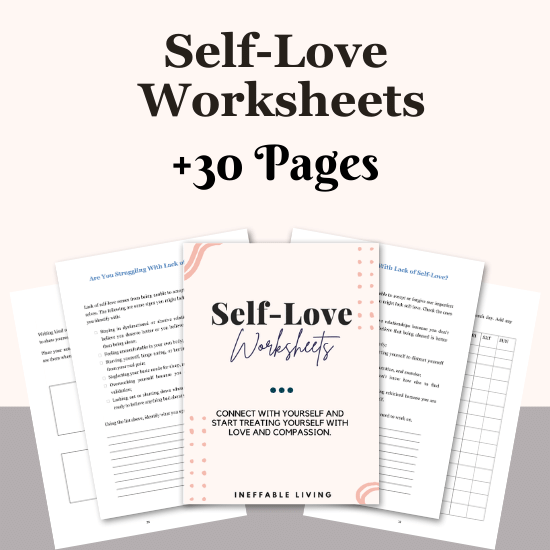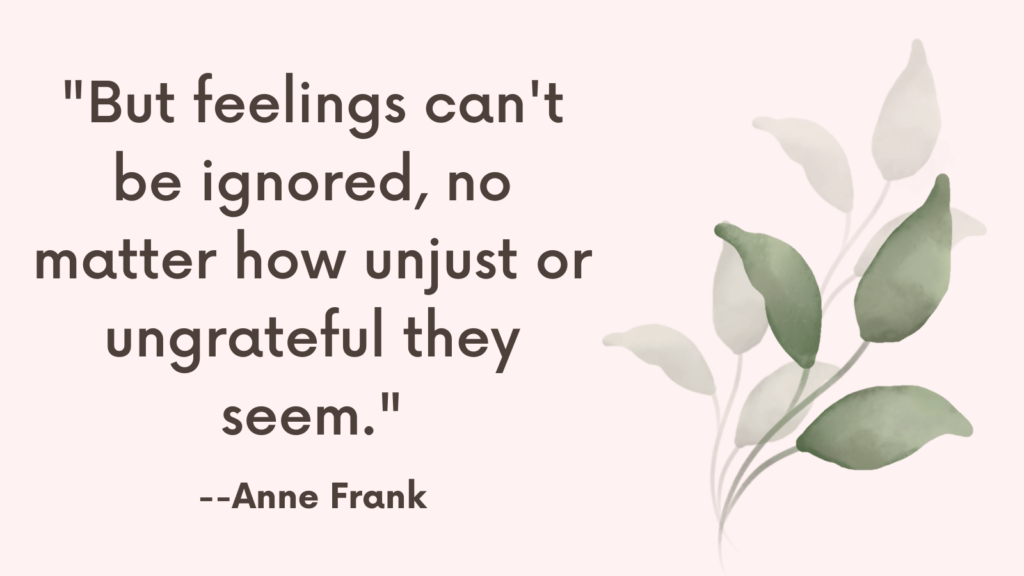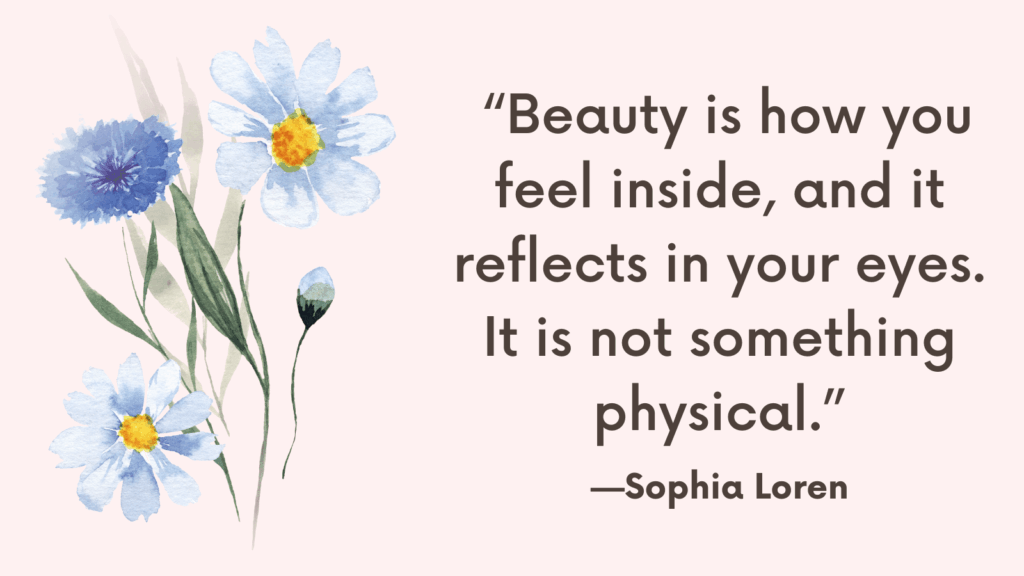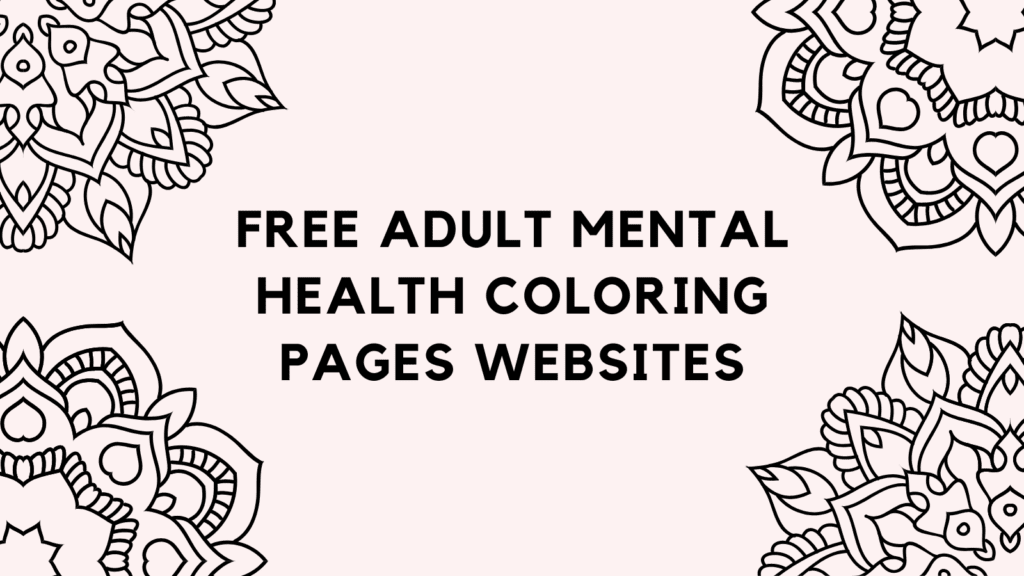In this post, you’re going to learn how to nurture yourself.
What Does It Mean to Nurture Yourself?
Nurturing yourself involves actively engaging in practices and behaviors that support and promote your overall health and happiness.
It encompasses caring for your physical, emotional, and psychological needs in a compassionate and intentional manner.
Nurturing yourself involves making a conscious and ongoing commitment to caring for your own well-being, just as you would care for someone you love.
Related: Self Love Quiz (+FREE Worksheets)
Why Self-Nurturing Feels Hard Sometimes
You Were Taught to Prioritize Others
If your worth has been tied to productivity, people-pleasing, or caretaking, nurturing yourself might feel selfish or uncomfortable.
You’ve Normalized Neglect
If emotional neglect was part of your past, you may not recognize your own needs — or may judge them when they arise.
You Confuse Relief With Healing
Numbing, scrolling, or distraction might ease the surface pain — but they don’t offer restoration. True nurturing is about depth, not escape.
Signs You Might Be Needing More Nurturing
- You feel emotionally brittle or reactive
- You can’t remember the last time you truly rested
- You’re caring for everyone except yourself
- You feel invisible in your own life
- You often say “I don’t even know what I need anymore”
These are not personal failures — they’re gentle alarms. It’s time to come home to yourself.
How to Nurture Yourself?
Here are some science-based strategies to help you nurture yourself and foster a positive and supportive relationship with your own mental and emotional health:
1. Self-Compassion
Cultivate self-compassion by treating yourself with the same kindness and understanding that you would offer to a close friend facing a difficult situation.
Research has shown that self-compassion is associated with greater emotional resilience and well-being.
2. Emotional Awareness
Practice emotional awareness by acknowledging and validating your emotions without judgment.
This can involve naming your emotions, understanding their triggers, and recognizing how they impact your thoughts and behaviors.
3. Positive Self-Talk
Challenge negative self-talk and cultivate a more positive and self-affirming inner dialogue.
Research has demonstrated the impact of positive self-talk on improving self-esteem and reducing symptoms of anxiety and depression.
Related: Top 45 Self Care Day Ideas at Home To Kickstart Your Self Care Ritual
4. Mindfulness and Relaxation Techniques
Engage in mindfulness meditation, deep breathing exercises, or progressive muscle relaxation to promote a sense of calm and inner peace.
These techniques have been shown to reduce stress and improve emotional well-being.
5. Establish Healthy Boundaries
Set and assert healthy boundaries in your personal and professional relationships.
Clearly communicate your needs and limits to others, and prioritize activities and relationships that nourish and support your well-being.
6. Prioritize Personal Values
Reflect on your personal values and priorities, and strive to align your daily actions and decisions with these values.
Research suggests that living in accordance with one’s values leads to greater life satisfaction and psychological well-being.
Related: Best 30 Day Self Love Challenge (+FREE Worksheets PDF)
7. Creative Expression
Engage in creative activities such as writing, art, music, or dance as a means of self-expression and emotional release.
Creative expression has been linked to improved mood, stress reduction, and increased self-awareness.
8. Physical Well-Being
Take care of your physical health through regular exercise, balanced nutrition, and adequate sleep.
Physical well-being is closely interconnected with mental and emotional health.
9. Seek Support
Reach out to friends, family, or mental health professionals for support when needed.
Building a strong support network is crucial for nurturing your mental and emotional well-being.
10. Engage in Learning and Growth
Pursue opportunities for personal and professional growth.
Lifelong learning and skill development contribute to a sense of purpose and fulfillment, enhancing overall well-being.
Related: Top 75 Self Love Questions (+FREE Self-Love Resources)
11. Gratitude Practice
Cultivate a regular practice of expressing gratitude for the positive aspects of your life.
Research has shown that practicing gratitude is associated with increased happiness and overall well-being.
12. Self-Care Rituals
Establish regular self-care rituals that cater to your specific needs and preferences.
Whether it’s taking a warm bath, spending time in nature, or engaging in a favorite hobby, these rituals can provide comfort and rejuvenation.

Conclusion
By incorporating these strategies into your daily life, you can foster a nurturing and supportive relationship with yourself, promoting greater mental and emotional well-being.
Remember that nurturing yourself is not only beneficial for your own health but also enhances your capacity to support and care for others.



